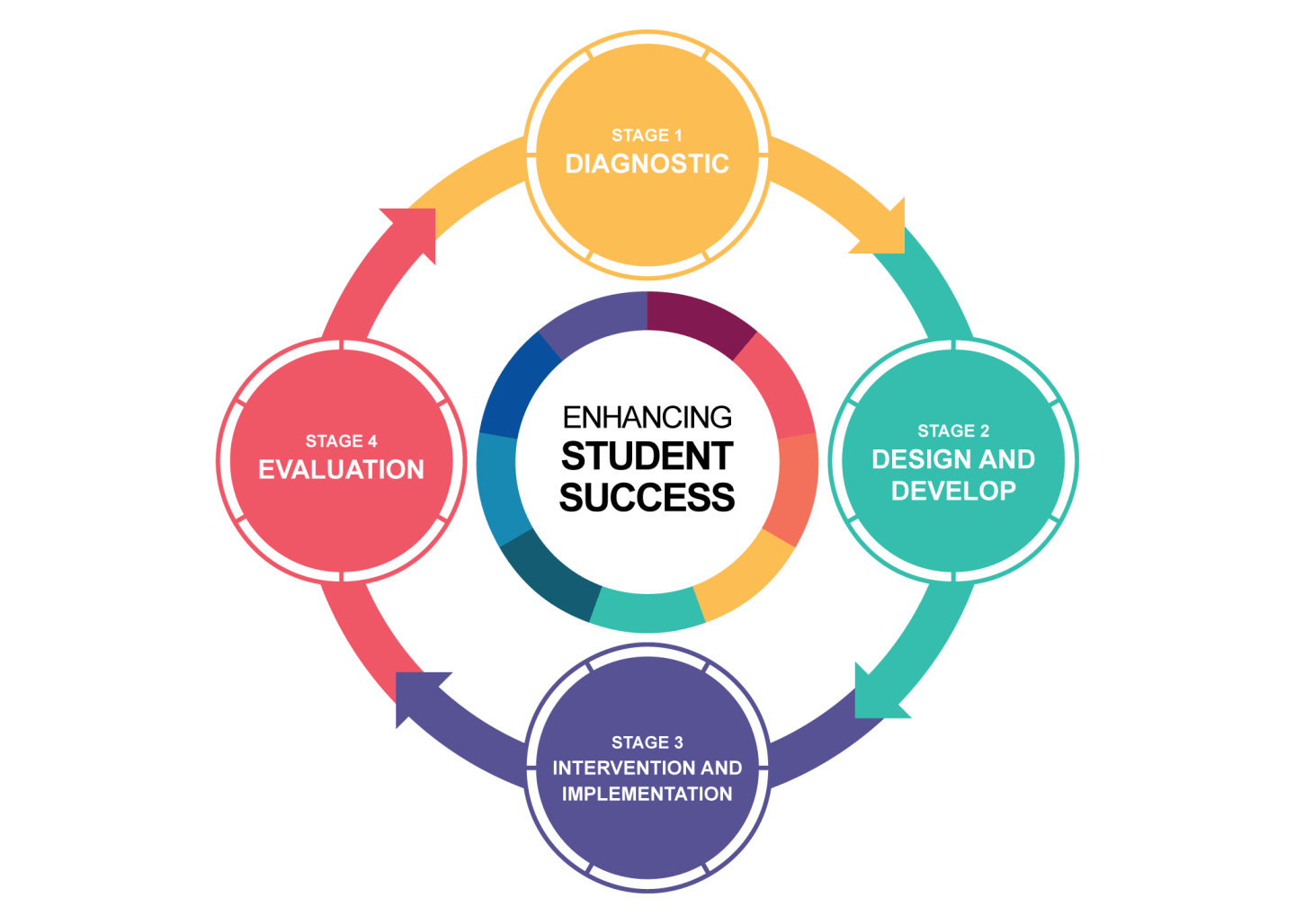
Over the past two years, Advance HE has been working with colleagues from across the sector to review and redesign the Student Success Framework Series.
The series provide a shared point of reference and common language to discuss, shape and review policy, process and practice around the broad and complex issues impacting student success. They can therefore be an extremely effective way of applying a consistent methodology to leading change, curriculum design, student support and learning and teaching.
Engaging with our evidence-informed frameworks in combination, will help you to identify smarter ways of working. This effect is embedded when considered at an institutional level and then applied across all programmes.
Request your student success pack
Complete the form by clicking the button below and we will send you an information pack including links to the framework series and other useful resources and opportunities.
How the frameworks are structured
Institutions
From an institutional perspective the strategy, policies and practices of the provider should support student success.
Educators
The frameworks identify areas of focus for course or programme teams to ensure they can take a holistic approach and connect with pedagogic practices within and across the curriculum.
Students
The frameworks are student-centred identifying the attributes and competencies a student should have the opportunity to develop and practice to enhance their success.

The series
The updated series will be made up of nine frameworks plus one overarching framework. We will update this page as we release each framework over the course of this academic year. The series can be requested via the webform at the bottom of the page.
Framework for Enhancing Student Success
Student success is a complex concept, involving academic achievement and the transition to employment, entrepreneurship, or further education. It also includes a deepening understanding and engagement with the discipline or subject, alongside the acquisition and enhancement of skills and personal growth.
This framework brings together the nine below individual frameworks. Collectively, these frameworks offer a comprehensive overview of the core thematic areas, which are most effective when adopted by an entire institution.
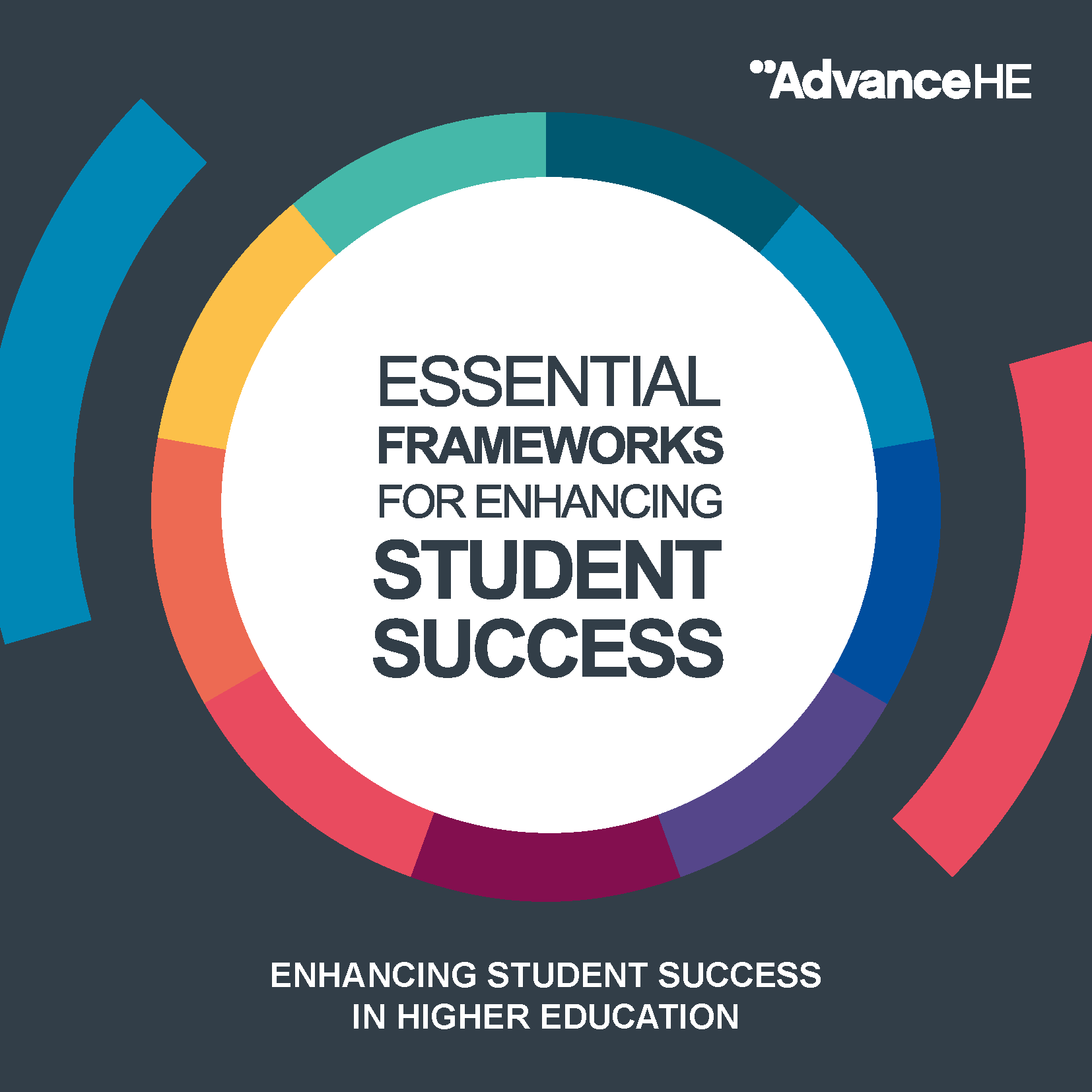
Framework for Embedding Employability
Employability, in the higher education context, is about ensuring that students have the knowledge, skills, and experiences they need to be successful in their future, whether that be within employment, enterprise creation, further study or beyond.
The framework has been designed to engage and support a diverse range of audiences including those involved in developing and implementing employability policy and practice, curriculum design, student support and learning and teaching.

Framework for Enhancing Assessment
Assessment and feedback practices are at the core of higher education (HE). Assessment provides judgement so it needs to be valid and reliable. It also supports student learning and feedback, so it should be designed to promote desirable learning behaviours, develop subject-specific and professional competencies, as well as other graduate attributes.
This framework is designed for all stakeholders; for educators, those in charge of policy, quality assurance, and quality enhancement, and those responsible for leading education at all levels from pro vice-chancellors to programme leaders.
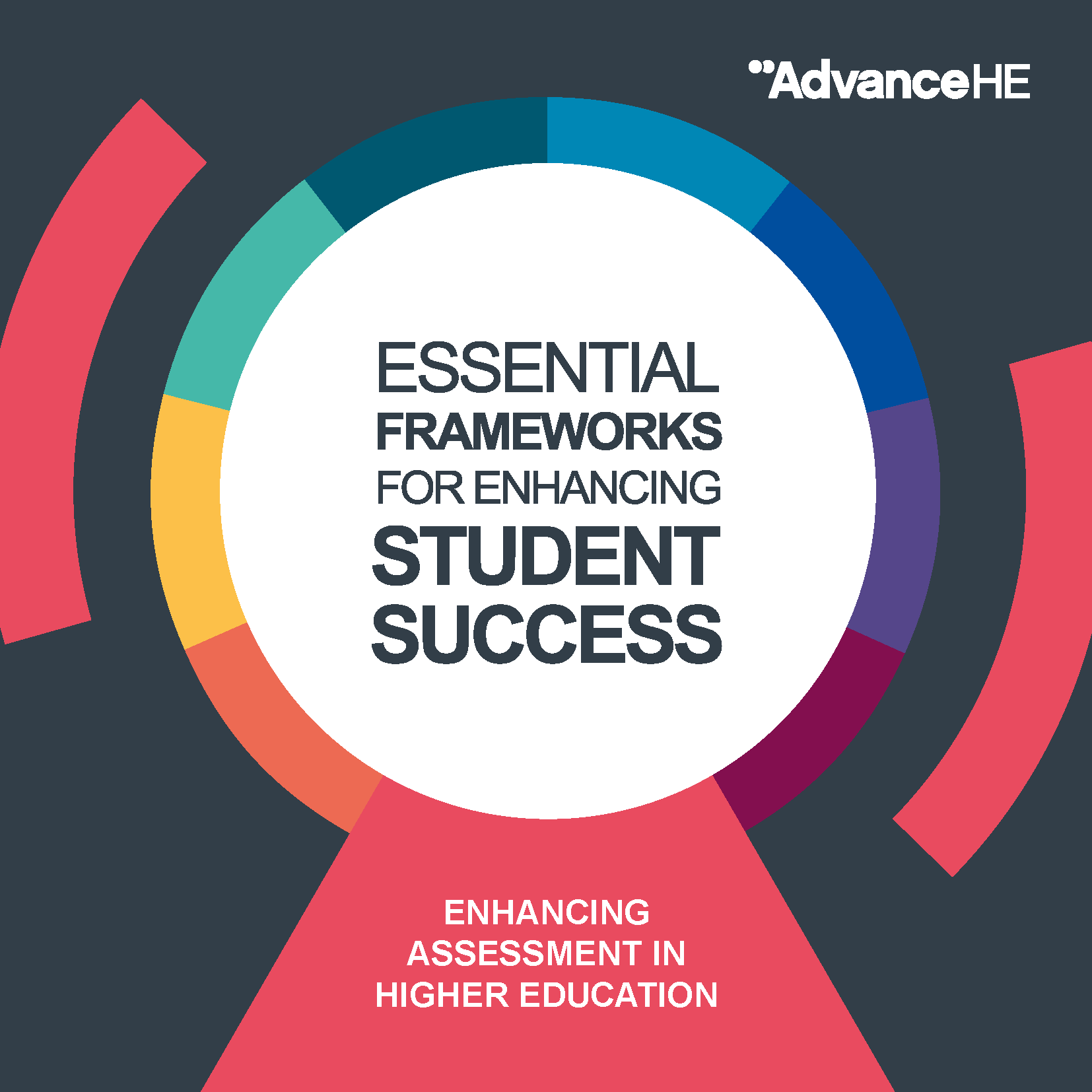
Framework for Internationalising Higher Education
Internationalising higher education (HE) is an ongoing, institution-wide commitment to fostering a globally aware and inclusive learning environment. This process encompasses all aspects of HE, from teaching and learning to research and collaboration. Internationalisation benefits all HE students, regardless of their location, background, discipline, or mode of study.
This framework is intended for all those within HE and beyond, encompassing those who contribute to and can benefit from an internationalised sector. Its principal audiences are organisations (e.g. HE providers, agencies, bodies and employers) and individuals (e.g. staff, students and employees).
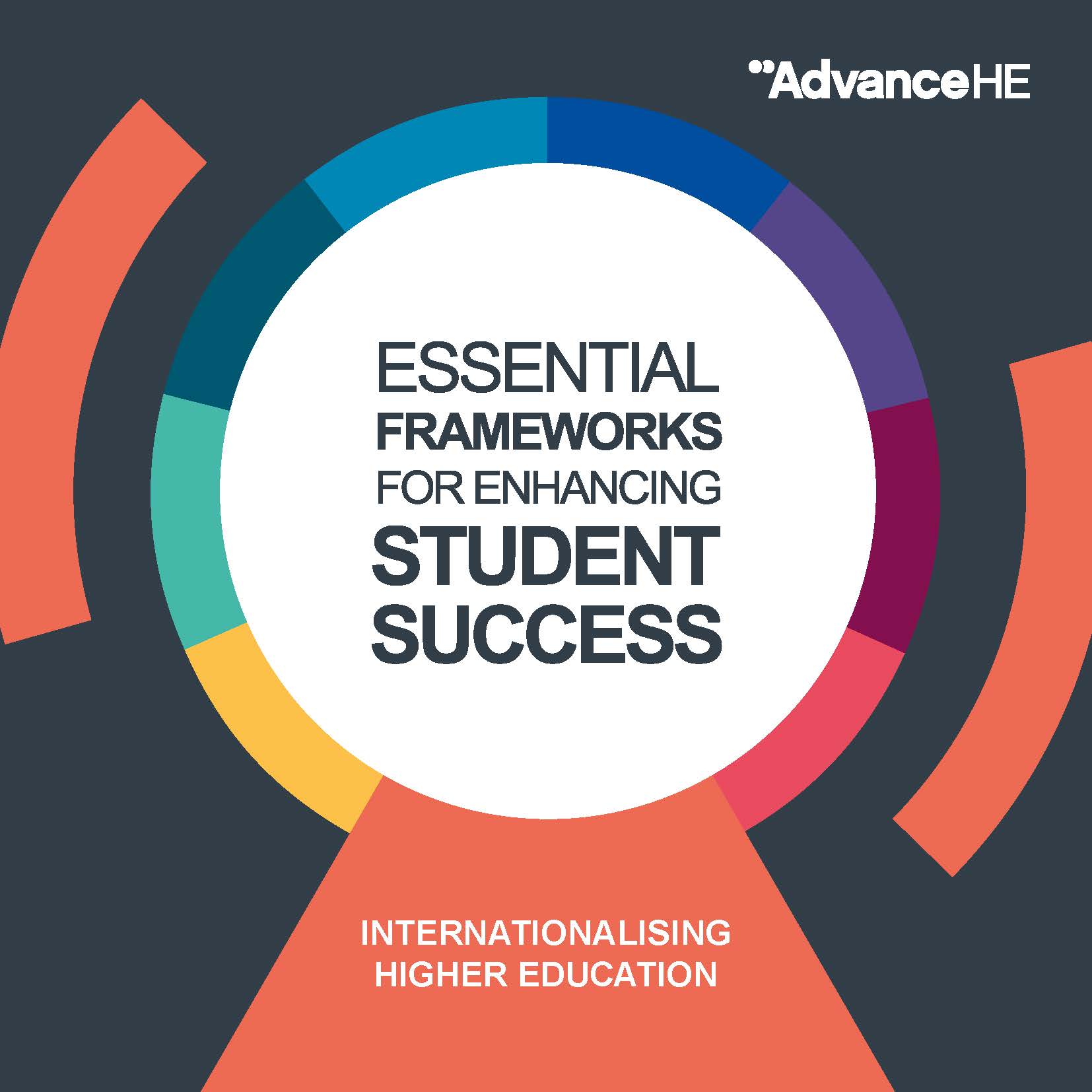
Framework for Education for Sustainable Development
Education for Sustainable Development (ESD) in higher education equips learners with the knowledge, competencies and values to tackle interconnected global challenges, encompassing economic, social and environmental sustainability.
The framework is designed to be of value to a broad audience and can be particularly beneficial in supporting course teams to understand ESD, integrating ESD across programmes, helping students identify the necessary competencies for sustainable citizenship and fostering agency for a sustainable future, developing comprehensive institutional approaches and aligning strategy to create a sustainable learning environment.
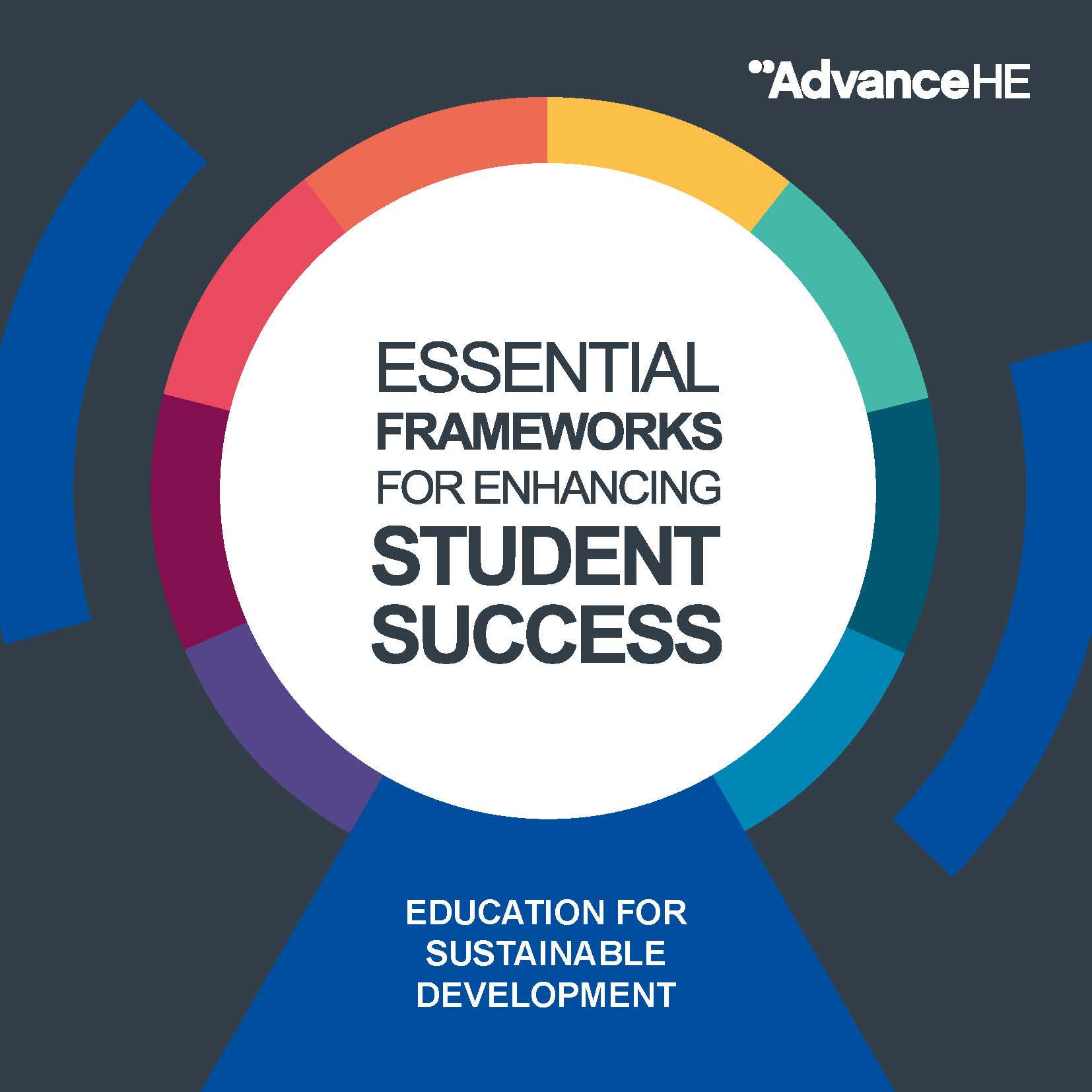
Framework for Enterprise and Entrepreneurship
Approaches to teaching and learning, by their very nature, often encompass entrepreneurial learning. Regardless of whether these are labelled as enterprise and entrepreneurship education, the enhancement of appropriate skills, knowledge, attributes and behaviours necessary for transforming creative ideas into actions are of ever-increasing importance across all disciplinary areas.
This framework is designed to inform and support the activities of those educators who interact with students through the development and delivery of enterprise and entrepreneurship curriculum and/or extracurricular activity.
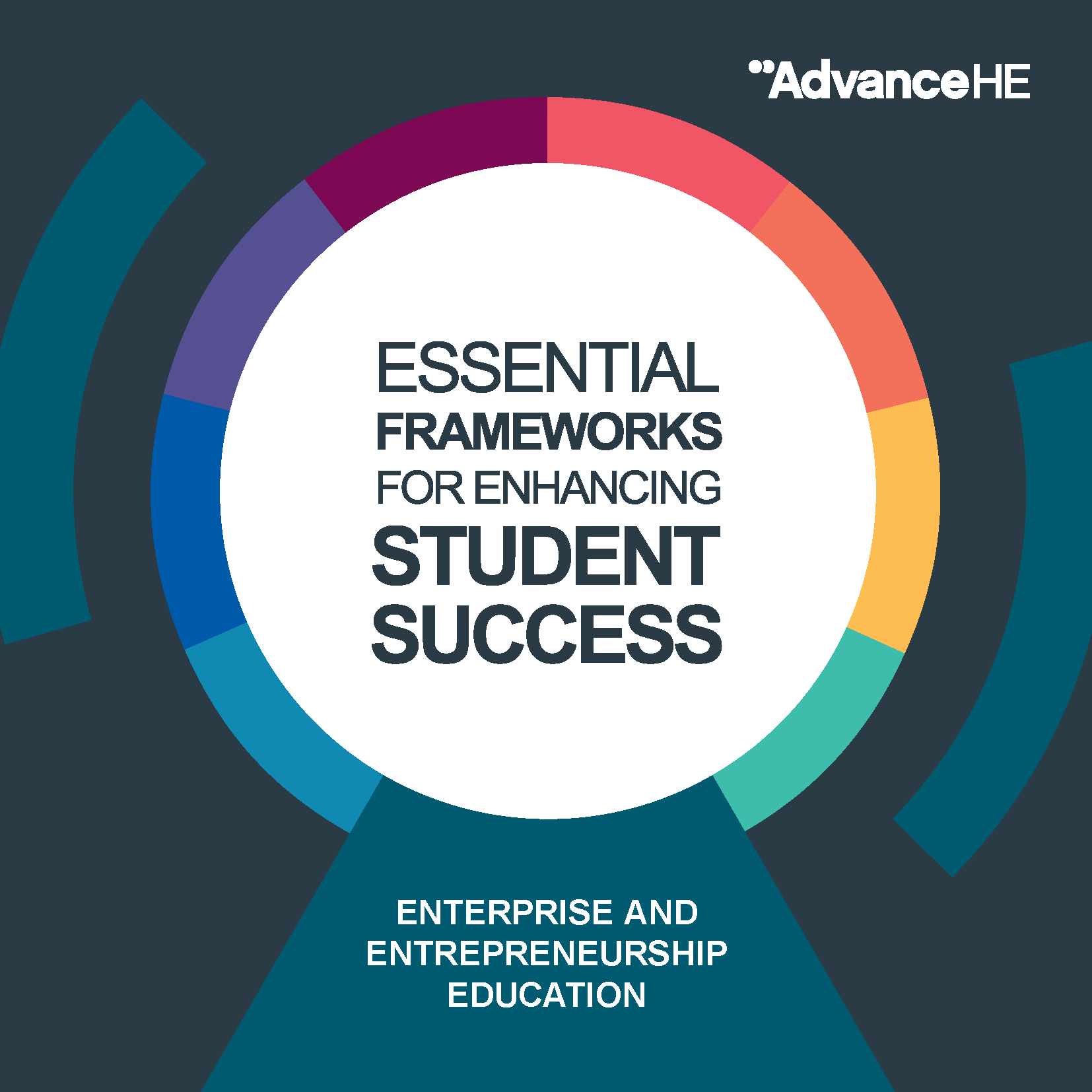
Framework for Student Engagement through Partnership
Student engagement describes the extent to which students are motivated, passionate and curious about their programme of study, their higher education community and their immediate surroundings. Student engagement through partnership prioritises the active involvement of students in shaping the curriculum, community and environment, recognising them as key stakeholders in the learning process.
The framework is designed to be of value to a broad audience and can be particularly beneficial in supporting stakeholders seeking to establish partnership approaches across areas of activity that affect the student experience.
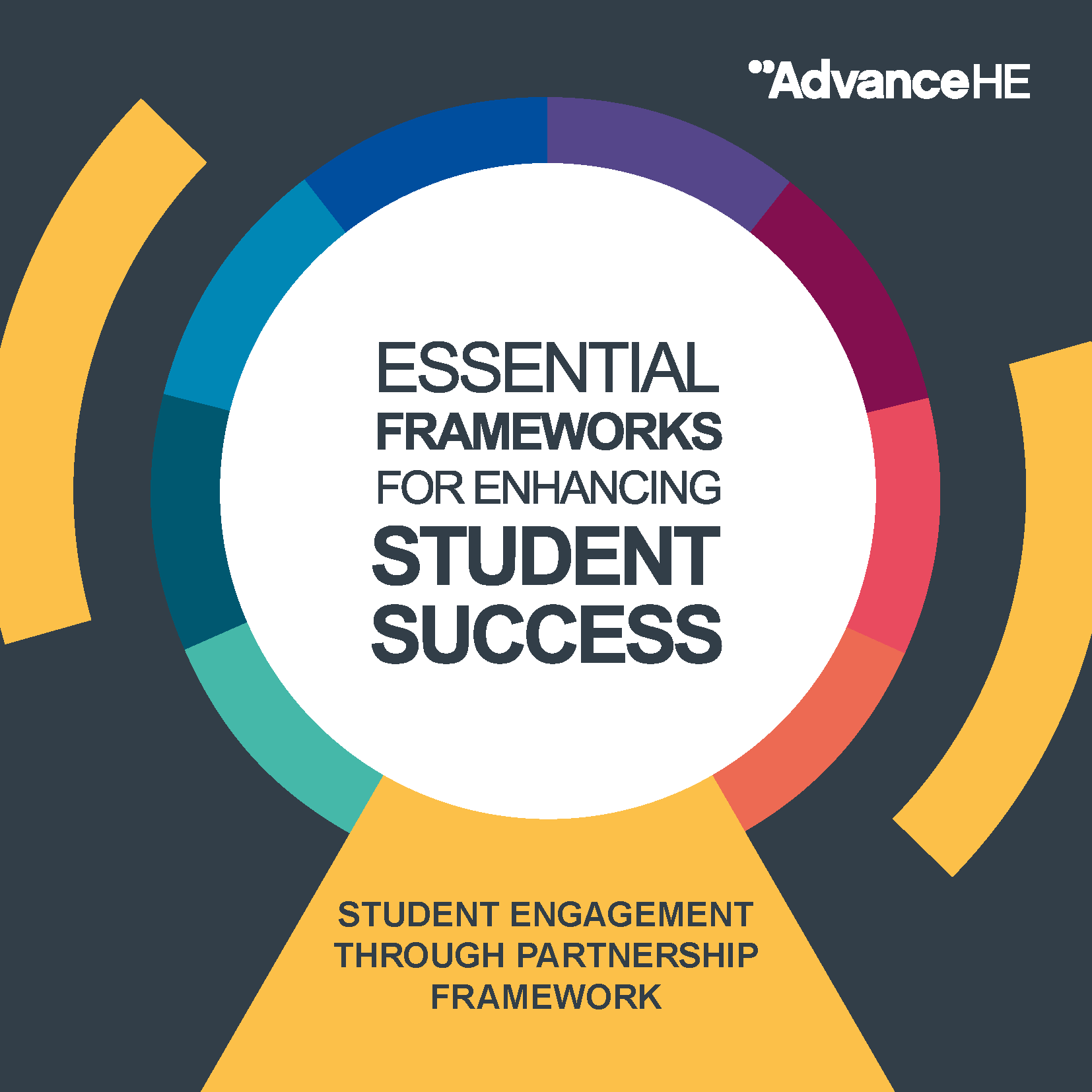
Framework for Student Access, Retention, Attainment and Progression
Student access, retention, attainment and progression define the foundations for student success. They each depend on fostering a sense of belonging and actively engaging students with their programme and the wider institution, enabling students to thrive throughout their higher education.
The framework is designed for all staff with a remit to support students to achieve their potential. Consideration of the impact of policies, practices and support services from the student perspective, institution-wide collaboration and the engagement of students as partners are key to student success.
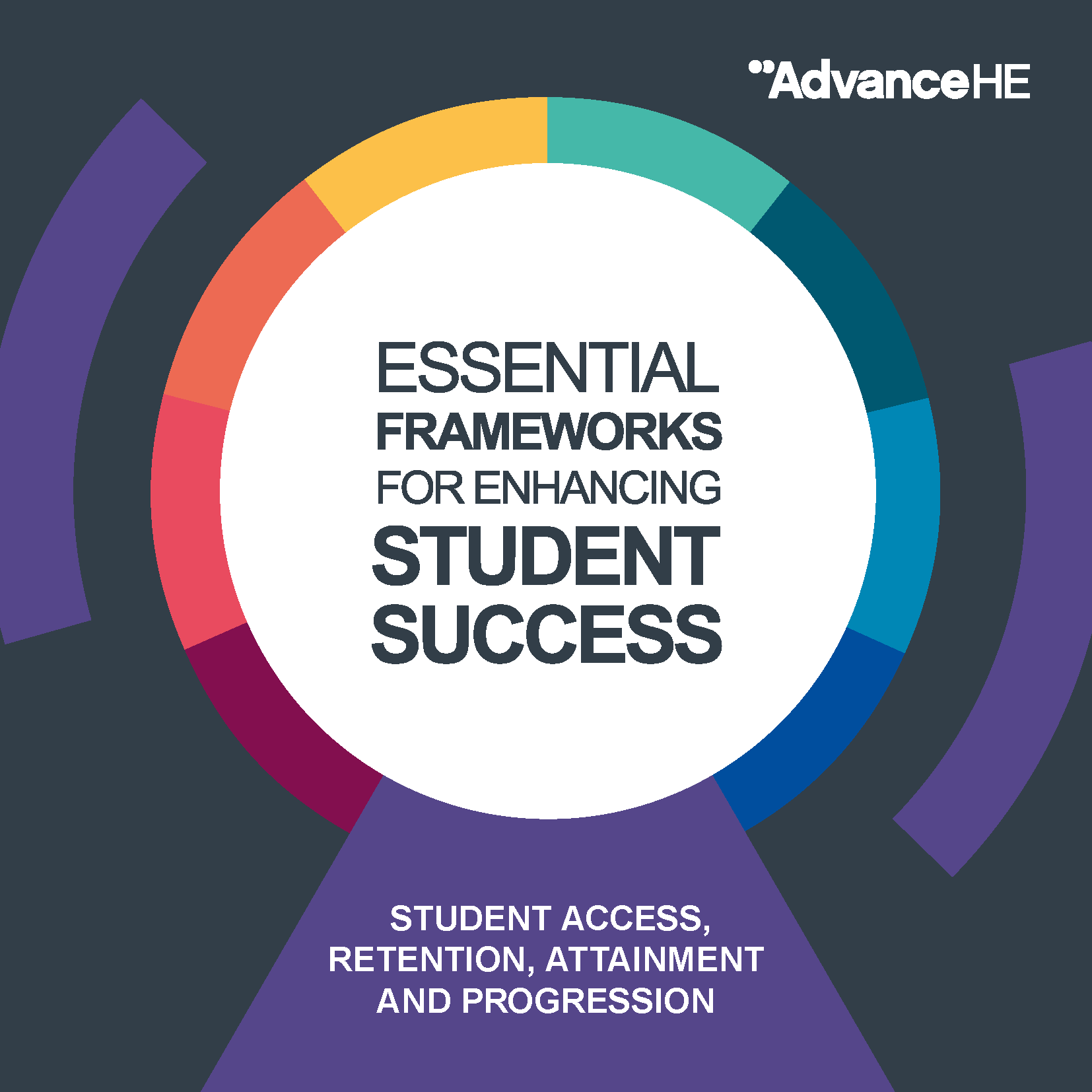
Framework for Flexible Learning
Flexible learning is an educational approach that employs pedagogically informed technologies to create personalised, engaging learning experiences, allowing students to choose how, what, when, and where they learn. Recognising that students’ needs, aspirations and commitments can evolve throughout their course, flexible learning ensures an engaging, personalised experience, supporting all students in reaching their potential.
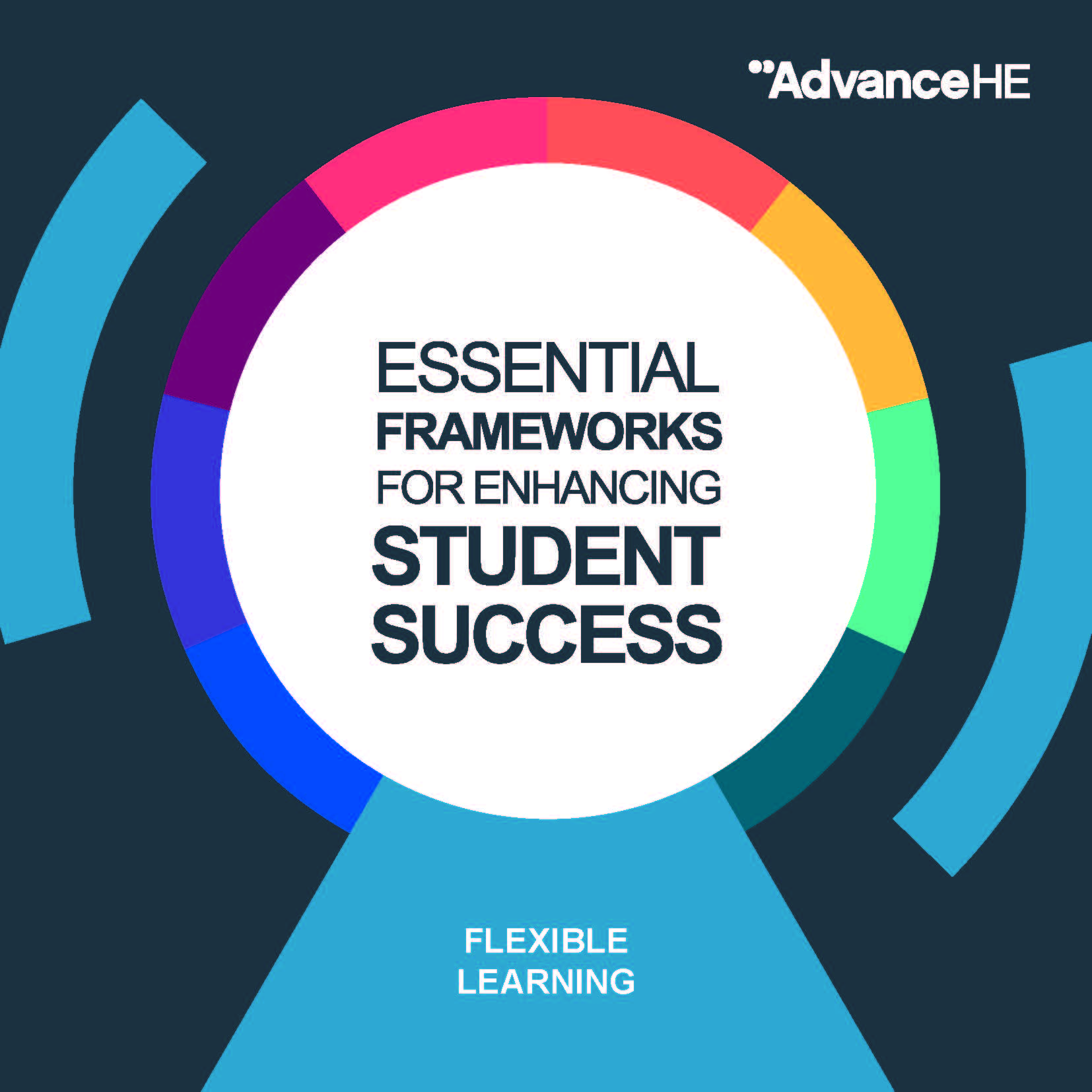
Framework for Inclusive Learning and Teaching
Inclusive learning and teaching is the intentional development of approaches that support all our students to thrive. This is a foundation for quality teaching in general; our teaching is only fit for purpose if it works for the diverse range of students at our institutions and treats them all like they matter. Rather than an end goal, inclusion is a mindset which promotes critical thinking and cultural transformation.
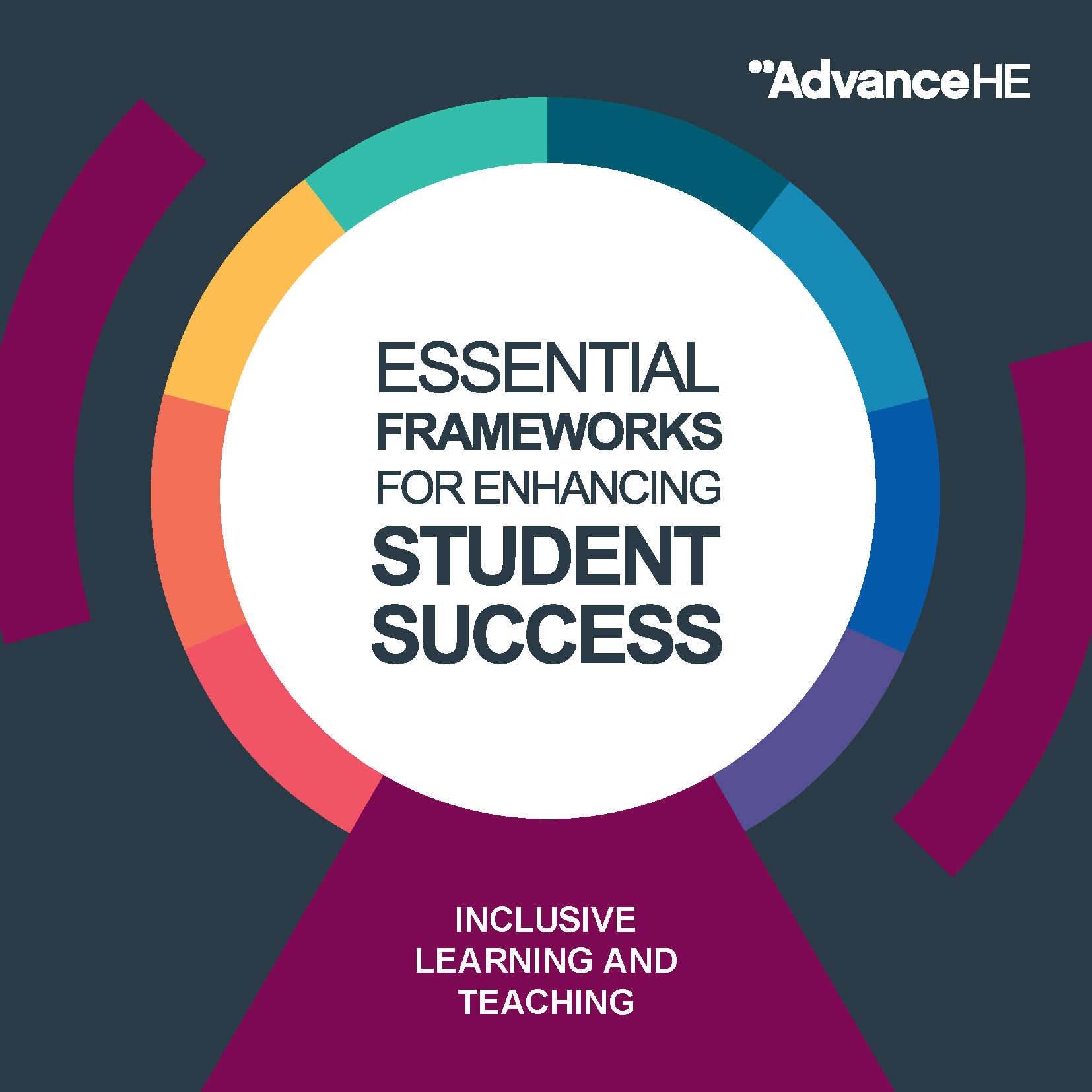
Working with Advance HE to enhance student success
Our expertise and globally recognised standards and frameworks help higher education organisations transform teaching by developing and recognising teaching excellence. We work with you – understanding your context – to tackle the issues which matter, sharing insight and evidenced-based practice to deliver student success.
